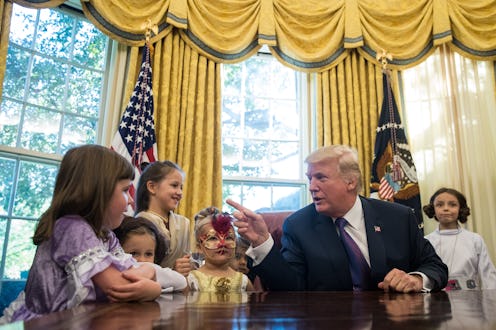News
It’s World Children’s Day & Congress Is Still Dawdling On Renewing CHIP

Governments, corporations and celebrities across the globe took symbolic steps to recognize World Children's Day on Monday. The United Nations opened its doors to child ambassadors, celebrities recorded videos in support of UNICEF, and Google put up a new doodle on its homepage. Meanwhile, if Congress wants to celebrate World Children's Day, it should reauthorize CHIP, the children's health care program that expired in September.
CHIP, or Children’s Health Insurance Program, is a federal program that allows low- and middle-income children, as well as pregnant women, to receive health care services for free or at a discounted rate. Specifically, it covers families whose incomes are too high to qualify for Medicaid but too low to afford private insurance. If Congress doesn't renew CHIP, up to 9 million children could lose their health insurance over the course of 2018.
Congress passed CHIP with bipartisan support as part of the Balanced Budget Act in 1997 under President Clinton. It's a complex law with a lot of intricacies, but the essence of it is simple: Each state is given a set amount of federal dollars every year, and they use that money, in various ways, to fund care services for low- and middle-income children. Those services include everything from routine checkups and immunizations to prescriptions, dental care and emergency services. CHIP is widely credited with reducing the uninsured rate among children from 14 percent in 1997 to 4.5 percent in 2015 — the last year it was reauthorized.
In 2009, states were given the option to expand CHIP coverage to pregnant women as well as children. As of January 2017, 30 states allowed pregnant women to obtain services through CHIP, although the range of those services varies drastically from state.
In 2016, CHIP cost the federal government $13.6 billion, which comes to about one-third of one percent of the government's total expenditures for that year. But while the program has repeatedly been renewed since it was passed in 1997, Congress didn't do so this year. Specifically, congressional Republicans refused to pass a CHIP renewal unless congressional Democrats agreed to gut funding for Obamacare, and Democrats refused to do that (Although both CHIP and the ACA concern health care, they're otherwise unrelated programs).
Congress still has the option of passing a CHIP renewal, but time is running out. For a number of reasons, it's impossible to say with certainty how long funding will last in any given state; however, the government has released some rough estimates, and they aren't pretty.
According the government's report, two states — Arizona and Minnesota — are set to run out of CHIP funding by December. In the first three months of 2018, an additional 27 states will deplete their CHIP funding, as will the District of Columbia. Another 19 states will run out of CHIP funds in between April and June.
An October report from Georgetown University's Health Policy Institute, meanwhile, contained even more dire predictions: The university estimates that six states will run out of CHIP funding by the end of the year, and that others will begin to close their CHIP enrollment programs even before they fully deplete their funds. Either way, the upshot is the same: According to government and independent analysis, 9 million American children will lose their access to health care services by 2019 if Congress doesn't move on CHIP.
In past years, Congress has renewed CHIP without controversy or hesitation, and there's no reason it can't do so again this year. They don't have much longer to act, though, and World Children's Day would be the perfect opportunity to pass CHIP legislation and prevent 9 million children from losing health care.